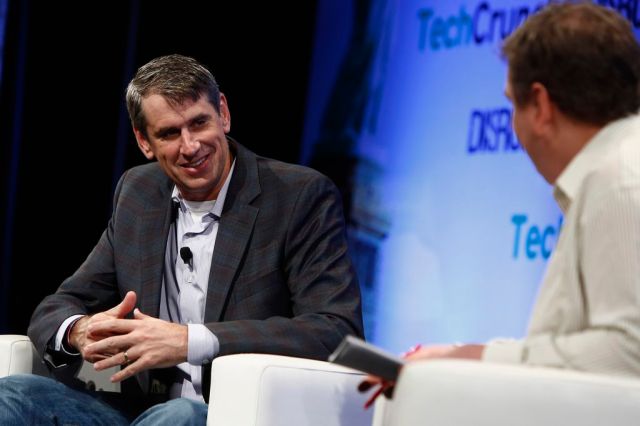Bill Gurley, a general partner at one of Silicon Valley’s top tier venture firms Benchmark Capital, said that the late-stage market is the “most frothy” he’s ever seen since the late 1990s.
Even though Facebook, Groupon and Zynga shares are still all underperforming relative to where they debuted at in their IPOs, growth-stage investors are still pouring capital into later-stage companies.
“The late-stage private market continues to be the most frothy thing I’ve seen since the late 1990s,” he said on-stage in an interview with TechCrunch founder Michael Arrington. “I thought it was going to go away when you had these IPOs trading at fractions of the opening price, but if you have a company that people have selected as the ‘chosen one,’ you’ve got people knocking on your door.”
Gurley said this has more to do with the supply of capital than the supply of companies. Basically, a lot of new participants like hedge funds have moved into late-stage funding, while other competing VC firms have scaled up with big growth funds.
“Historically, this has been shown over time to be a bad thing,” he said. If companies take on generous amounts of funding, they may feel pressure to spend a lot of that on marketing.
At the same time, the availability of growth funding on private markets may tempt companies to keep postponing an IPO past the point where they might miss their window if growth slows.
Notably, Benchmark elected not to do a growth fund. When they raised for their seventh fund back in 2011, they raised $425 million plus $80 million for a “Founders Fund.”
“We want to be an artisan business,” he said. He said when the firm tried to do a European fund a decade ago, they found that they were spending too much time managing offices in other countries. They even missed a deal when Gurley punted a company to a European partner and the founder felt insulted that he was passed off. That European arm is now Balderton Capital and Gurley adds, “They’ve done fine and they’ve had IPOs. We just found that we were spending less time doing what we love to do, which is help entrerepeneurs build great companies.”
On the totally opposite end of the market, there’s a dearth of capital for seed-stage companies that want to progress to a Series A round.
“There were so many new angel-funded companies. It’s like pushing a pig being pushed through a python — when something big gets caught in a narrow system,” he said. “Some of them are getting funded and some are finding other ways to wind down.”
